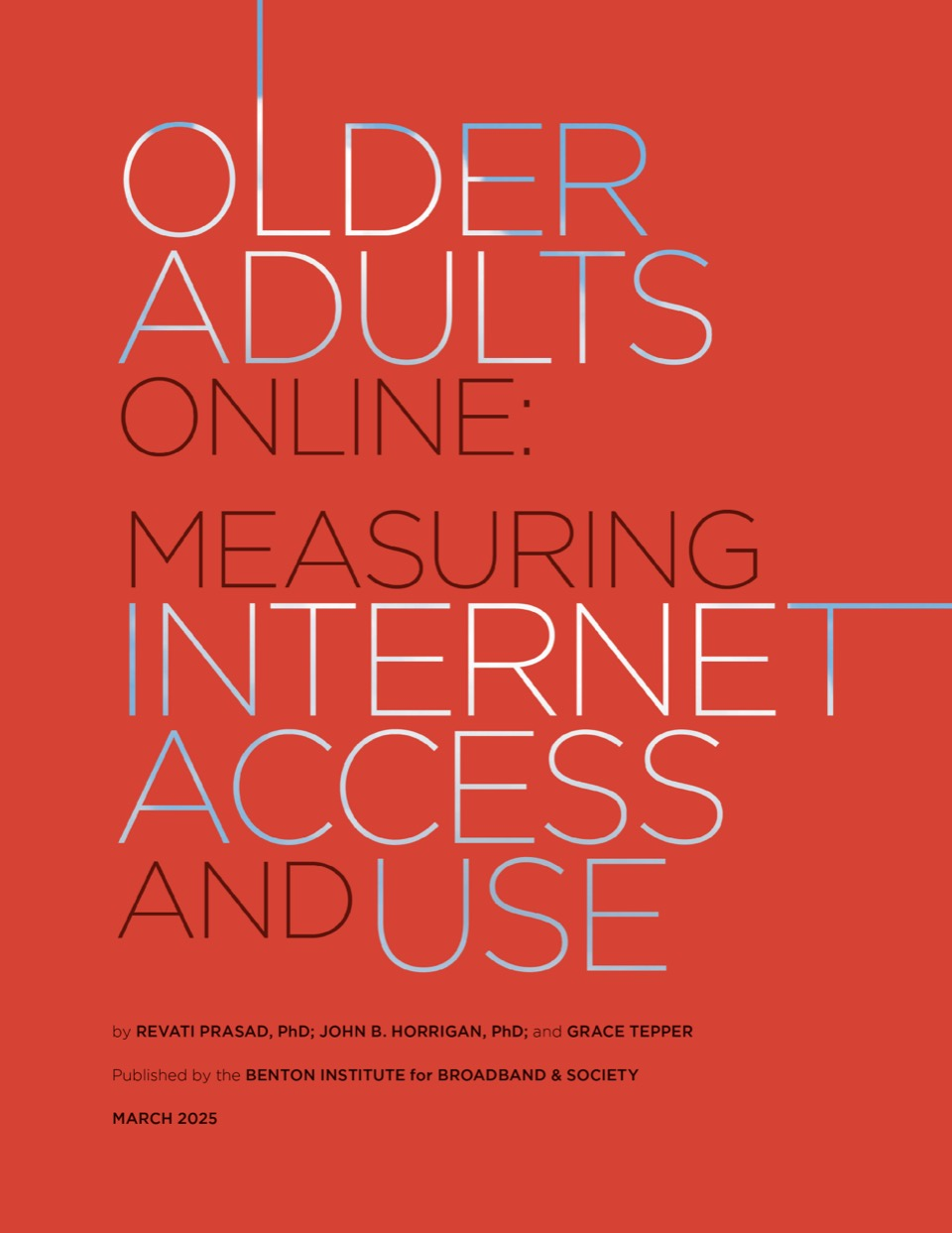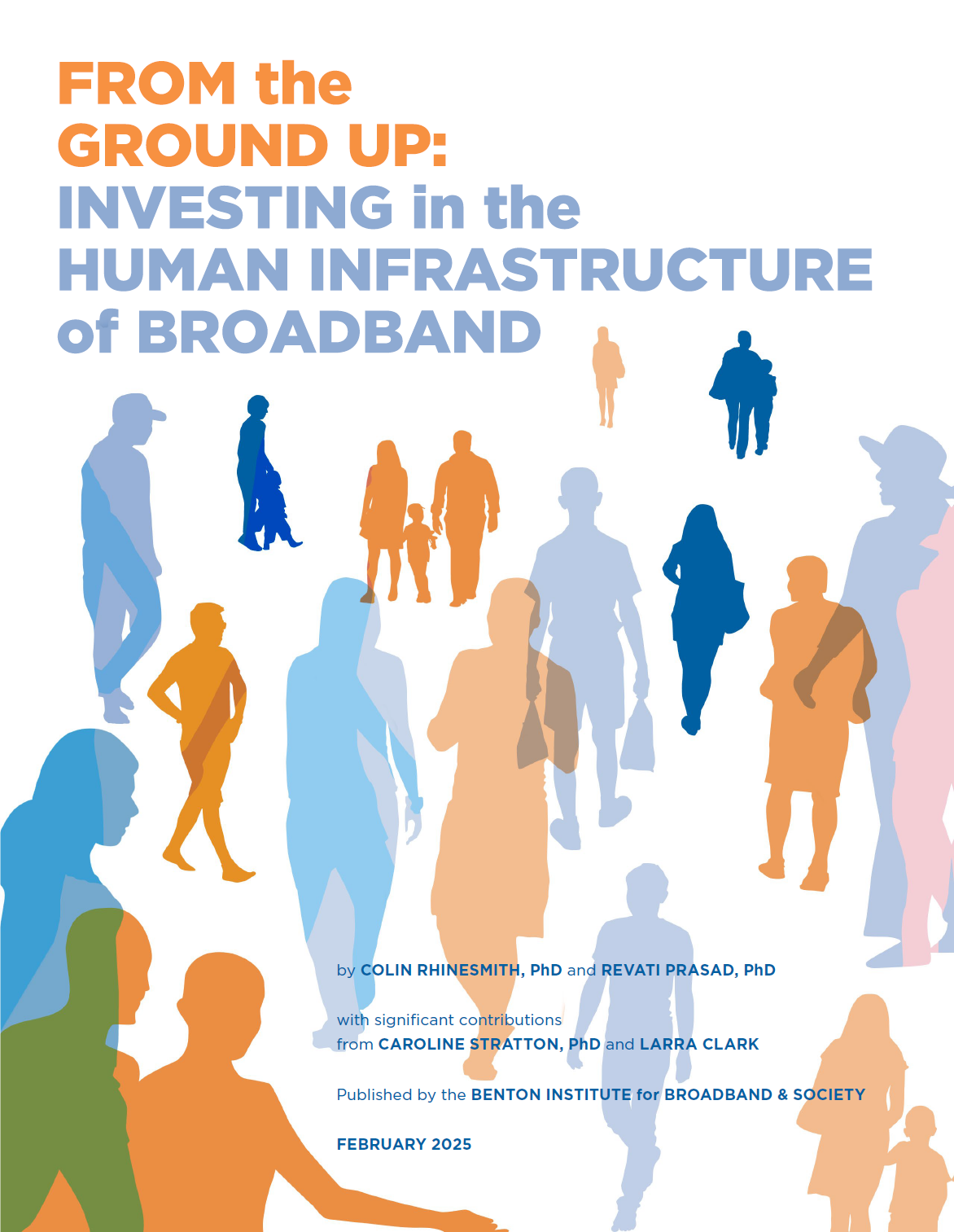Revati Prasad
Let's Control-Alt-Delete on Delete, Delete, Delete
President Donald Trump’s pick to lead the Federal Communications Commission, Chairman Brendan Carr, recently launched his own proceeding he calls “IN RE: DELETE, DELETE, DELETE.” Carr says he’s following Trump’s orders to deregulate the telecommunications industry to spur economic prosperity.
Measuring Internet Access and Use Among Older Adults
Today, we published Older Adults Online: Measuring Internet Access and Use, guidance to help states develop the indicators and methodologies that will help them measure progress and identify ongoing connectivity gaps and hurdles. Our guide provides an overview of statutory requirements about indicators and measurable objectives from the Digital equity Act (DEA).
The Digital Equity Act (DEA) of 2021, a part of the Infrastructure Investment and Jobs Act (IIJA), establishes programs that aim to ensure that all people “have the skills, technology, and capacity needed to reap the full benefits of our digital economy.” Identifying older adults (those 60 years

Investing in the Human Infrastructure of Broadband
Earlier this year, the Benton Institute for Broadband & Society published The Human Infrastructure of Broadband: Looking Back, Looking Around, and Looking Ahead, highlighting how investment in the physical infrastructure of broadband—fiber-optic cables, etc—may not meet its full potential if we do not also invest in the human infrastructure of broadband—the necessary social and relational complement to the work of building physical infrastructure.
From the Ground Up: Investing in the Human Infrastructure of Broadband

What We Know About the Human Infrastructure of Broadband
The vast majority of funding in the immense Infrastructure Investment and Jobs Act is focused on building physical networks to locations where people are unconnected or insufficiently connected. Investments and research have traditionally privileged the wires and poles of broadband infrastructure without accounting for or making explicit the human infrastructure needed to enable digital opportunity.
The Human Infrastructure of Broadband: Looking Back, Looking Around, and Looking Ahead

How States Plan To Track Digital Equity Progress
The Infrastructure Investment and Jobs Act sets an ambitious overarching goal: internet for all. But past access and adoption, states are asked to think about how increased access to and use of broadband can drive equitable outcomes in areas like access to health care and essential services, education and job training, and participation in the society, economy, and civic institutions of the Nation.
The Infrastructure Investment and Jobs Act sets an ambitious overarching goal: internet for all.

This report highlights how the early collective efforts of residents in east-central Vermont helped make Communications Union Districts (CUDs) a statewide, scalable strategy for ensuring locally driven connectivity today.


